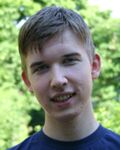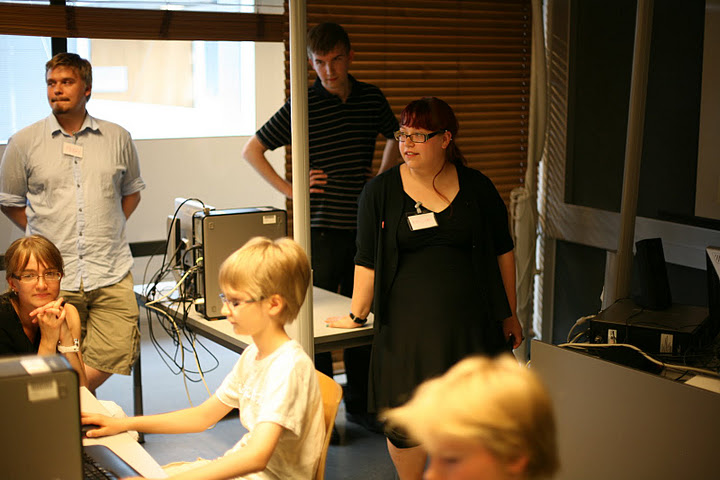Study, teach and do what is fun

New postgraduates have recently been selected for the HeCSE graduate school that the department shares with Aalto University. One of the rising young researchers is Antti Laaksonen.
Antti finished his Master’s degree in spring 2011. Those whose job description includes reading lightweight Scrum theses written for the industry may be heartened by the fact that this student wrote his thesis on a most essential area of computer science, i.e. minimization of regular expressions. Antti chose his topic himself, because it was ‘interesting and suitably challenging.’
As academic tradition prescribes, Antti has worked as a teacher at the department while still an undergraduate, teaching the courses Introduction to programming, Advanced programming, Data structures and Computational models. His teaching has been successful, to say the least, as he was awarded the department’s ‘teacher of the year’ prize for junior teachers in 2010. Though the award was a nice surprise for Antti, it seems it didn’t come completely out of the blue, as Antti says he invests a great deal of work into his teaching.
After finishing his MSc degree, Antti continued as a postgraduate immediately, since he is interested in research and might want to make a career out of it. He has selected the automatic inscription of music as his research topic; it entails transferring music from a digital format (e.g. CD) to symbolic representation (such as notation). Contrary to many researchers, Antti has practical experience of his topic in addition to a solid theoretical basis; he plays both the violin and the piano and makes arrangements for small combos.
One of the contributions of Antti’s research is the utilisation of the music genre when transcribing it. In other words, when we know what genre the music belongs to, it is easier to produce the correct symbolic representation of it. In his research, Antti concentrates on western art music and its different forms, including e.g. pop music. In the end, the fact that all we ex-youngsters know, i.e. that Jethro Tull, Procol Harum, and Johann Sebastian Bach are all just variations on the same theme, will be proven scientifically.
Antti’s doctoral thesis will be finished by the end of his four-year HeCSE period 2012-2015, under the supervision of Esko Ukkonen and Kjell Lemström. So far, Antti has studied previous research into this topic, and the main work will start in 2012. With his proven skills, Antti will continue teaching at the department while working on his thesis.
Antti says his hobbies are music and programming, the same things he is studying and teaching. When I couldn’t get Antti to admit that work and hobbies cannot be the same thing, I had to look it up in Wikipedia: ‘A hobby is a regular activity or interest that is undertaken for pleasure, typically done during one's leisure time. Hobbies are practiced for interest and enjoyment, rather than financial reward. Engaging in a hobby can lead to acquiring substantial skill, knowledge and experience. However, personal fulfilment is the aim. For some people, work and hobbies come together, and they are happy with this situation. It seems I have to admit that Antti has been able to choose his hobbies well.

In summer 2011, Pekka Mikkola (l.), Antti Laaksonen, Emilia Hjelm and Arto Vihavainen (not in picture) supervised the Linkki programming camp for children. Photo: Hanna Mäenpää.
Editor: Jukka Paakki
Translation: Marina Kurtén
